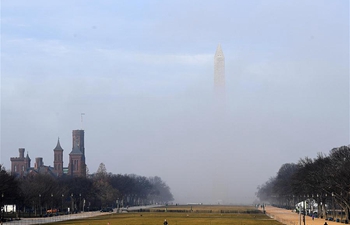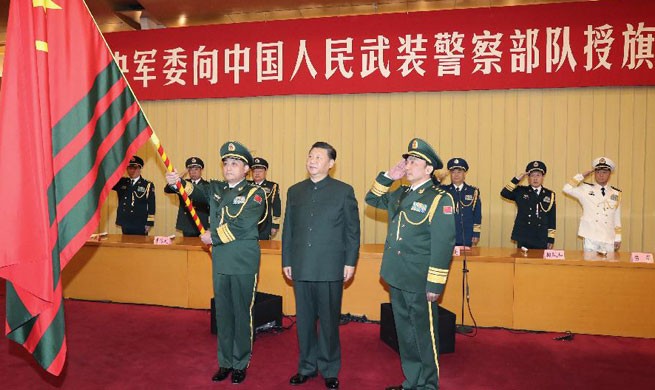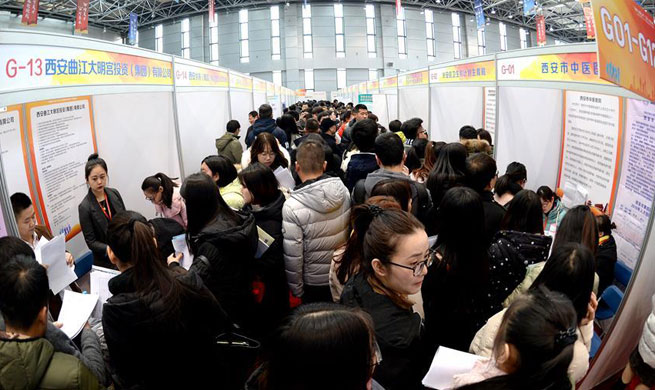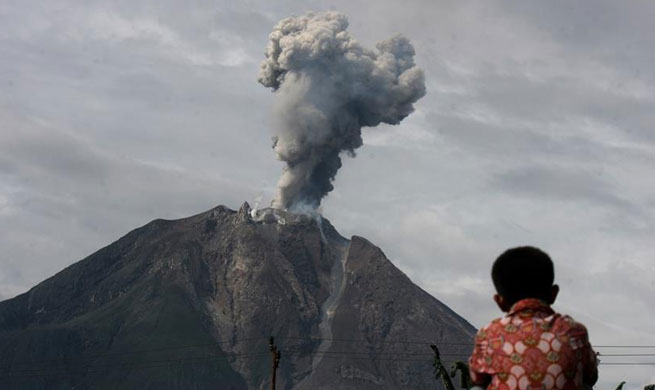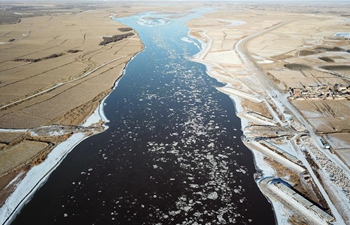RAMALLAH, Jan. 10 (Xinhua) -- The Palestinians on Wednesday strongly criticized Israel's new plan of constructing settlement units in the West Bank and said the policies of the U.S. administration in the Middle East have provided cover for Israel.
Nabil Shaath, an adviser to Palestinian President Mahmoud Abbas on foreign affairs, told Xinhua that Israel is using the current U.S. administration's positions and stances to accelerate its plans for settlement expansion in the Palestinian territories.
He accused the Israeli government of carrying out "an expansionist plan based on the destruction of the two-state solution and undermining the chances of peace through settlements and the confiscation of as much Palestinian land as possible."
"The Israeli efforts are aimed at annexing the entire West Bank, including occupied East Jerusalem, and in doing so intensifies the pace of settlement construction in the absence of serious international accountability," said Shaath.
He also stressed that the Palestinian side "won't accept any peace talks that undermine the Palestinian rights to establish an independent state on all the territories occupied (by Israel) in 1967 with East Jerusalem as its capital and resolve all final status issues."
The Israeli media quoted Israeli Defense Minister Avigdor Lieberman as saying that he would ask the Israeli government for approval Wednesday for a plan to build 1,285 new settlement units this year in settlements in the West Bank.
Lieberman said that parallel plans would be made to build 2,500 new settlement units in about 20 different settlements in the West Bank, according to the Israeli media reports.
The file of settlement expansion is the most prominent aspect of the Palestinian-Israeli conflict and one of the main reasons for the end of the last peace negotiations, sponsored by the United States between the two sides in mid 2014.
Minister of Foreign Affairs in the Palestinian Authority, Riyad al-Maliki, blamed the "international deficit and Arab weakness" in the escalation of Israel's increase of settlement construction.
He stressed that the Palestinian side "is no longer betting on the Arab supportive position, as was the case in previous times to face Israel and its settlement plans."
"The Palestinian side must rely on itself with limited means to move at different diplomatic and legal levels and the continuation of popular resistance," al-Maliki stressed.
He pointed out that a meeting of Arab foreign ministers will be held at the end of this month to determine the next Arab move regarding the U.S. declaration on Jerusalem.
U.S. President Donald Trump announced Dec. 6 the recognition of Jerusalem as the capital of Israel and the transfer of his country's embassy to it, which stirred angry Palestinian, Arab and international reactions.
The Palestinian Central Council of Palestine Liberation Organization (PLO) is scheduled to hold a meeting in the West Bank city of Ramallah on Sunday and Monday to discuss the Palestinian response to the U.S. decision on Jerusalem and Israel's settlement policies.
Ahmed Majdalani, member of the Executive Committee of the PLO, said that the central council will discuss the cancellation of Palestinian mutual recognition with Israel, stop security coordination and stop the implementation of Palestinian agreements signed with Israel.





